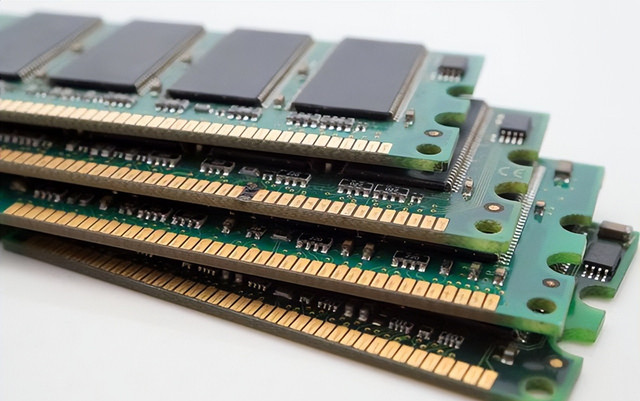

In the AI era of data deluge and computing power explosion, the iteration speed of storage technology is advancing at an unprecedented pace. When Kioxia's 8th generation BiCS FLASH™ redefines industry standards with a disruptive posture of 218-layer stacking and a 3.6Gbps interface speed, the old generation memory that enterprises have accumulated has become a "silent asset". Shenzhen Mingjiada Electronics Co., Ltd. takes its technological pricing capabilities and global resource network as the core engines to build a value closed loop from recycling to regeneration for the entire Kioxia memory series, turning every idle chip into capital fuel for driving innovation.
Why has Kioxia memory become a "high-price recovery target"? Decoding of technological scarcity
The irreplaceability of automotive-grade storage
Kioxia automotive-grade eMMC/UFS memory has been certified by AEC-Q100 and can operate stably under extreme conditions ranging from -40°C to 125° C. Its built-in error correction algorithm (ECC) and loss balancing technology ensure the reliability of data throughout the ten-year life cycle of intelligent cockpits and ADAS systems. Due to the complexity of production line certification, the discontinued models of such chips are priced at a premium of up to 300% in the black market.
2. Generational technology dividends of BiCS FLASH™
The 8th generation BiCS8 QLC: A 2Tb single-chip achieves a 4TB package capacity, with a 70% improvement in write efficiency. It has been integrated into AI training clusters by enterprises such as Pure Storage.
The fifth-generation TLC, such as the TH58TFT1JFLBAEG and other models, is still widely used in industrial control equipment due to its 3D stacking architecture and has become a must-have in the maintenance market because of its long service life (1200TBW).
3. Scarce labels of original factory particles
The wafer yield control at Kioxia's Yokkaichi factory in Japan is strict. The write decay resistance performance of the original factory's packaged chips (such as TH58TEG9DDKBA8H) is significantly better than that of white wafers, making it the preferred choice for purchasing data center accessories.
Mingjiada's Recycling Revolution: Triple technical Barriers Define Industry Standards
Dynamic premium model: Enabling Old Chips to "outpace inflation"
Based on the real-time data chain of global distribution channels, Mingjiada implements a stepped pricing system for scarce models:
The BiCS8 QLC chip, due to its compatibility with AI computing power nodes, has a recycling price 15% to 20% higher than the market average.
The production halt of automotive-grade EMMCs (such as TH58BFT0JFLBAEG) has led to a gap in the maintenance market, with the premium rate exceeding 25%.
2. Military-grade testing system: Ending the "Grey Game" of Refurbished Chips
Physical layer fluoroscopy: X-ray scanning of the BGA packaged solder ball structure to identify the traces of replanting balls (with an accuracy of 5μm);
Full-condition pressure test: -40°C freezing and 125°C high-temperature chamber simulate extreme environments to verify data retention characteristics.
Original factory lineage traceability: Verify the unique Kioxia code (such as KIOXIA JAPAN) and batch number database to eliminate Remark chips.
3. Small-batch flexible recycling: Breaking the curse of long-tail inventory
Breaking the traditional industry rule of "minimum collection of 10,000 pieces", it supports the disposal of R&D surplus materials and materials returning to the port with a minimum collection of 50 pieces, thereby reducing the warehousing costs for small and medium-sized enterprises.
Global Fast Chain Network: 48-hour ultra-fast capital conversion
Mingjiada has established three major hubs in Shenzhen, Hungary and North America, building a "super highway" for the cross-border circulation of memory chips:
Logistics minimalism: DHL/UPS cash on delivery + full insurance coverage, Shenzhen warehouse acceptance cycle compressed to 24 hours.
Multi-currency lightning settlement: Supports T+1 payment in USD/EUR/RMB to avoid the risk of exchange rate fluctuations.
Localization service node: The Japanese technical team covers the radius of Kioxia's Yokkaichi factory, providing native language responses.
Conclusion: In the tide of storage technology, be the "ferryman" of sustainable value
When the 218-layer stacked chip of BiCS8 becomes the "data vessel" of AI servers and the discontinued automotive-grade memory still safeguards the safety bottom line of millions of smart vehicles, Mingjiada is reshaping the cycle rules of the storage industry with its technological insight and resource integration capabilities.

Get your exclusive memory solution right now
Recycling Hotline: +86 13410018555 (Mr. Chen)
Contact email: sales@hkmjd.com
Official website price: www.mjdic.com